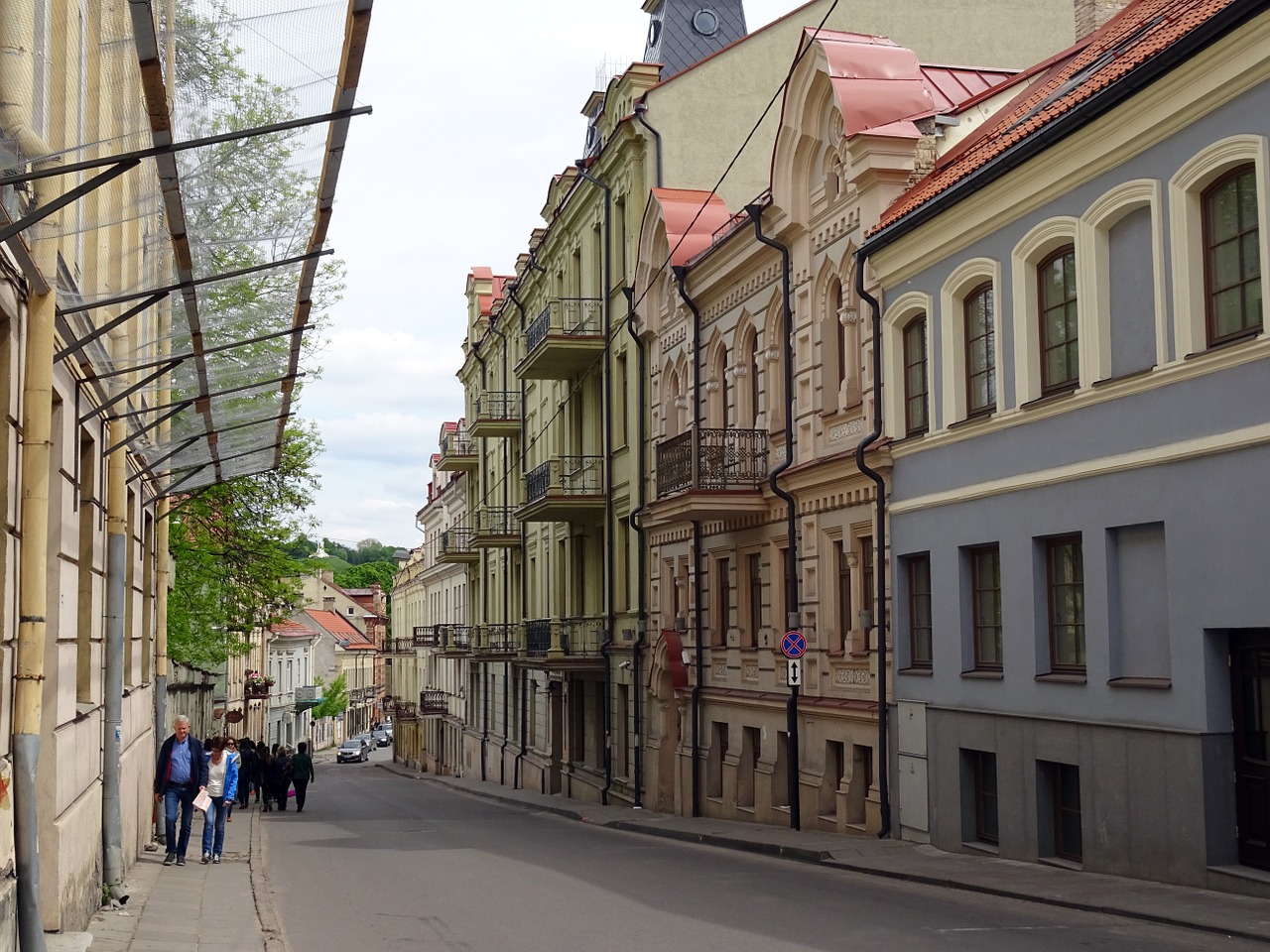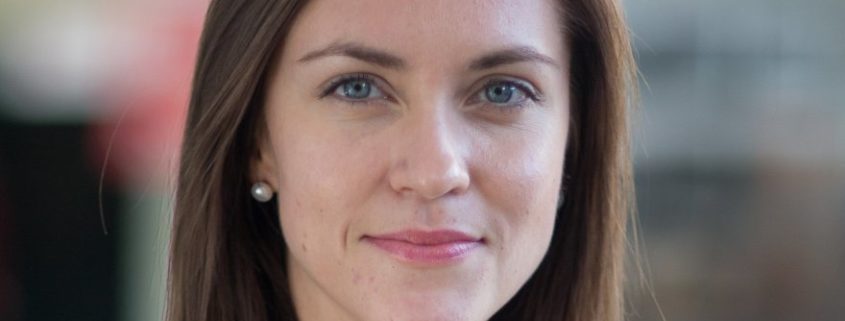Ada Jonuse: Lithuanian Startups Need to Think Bigger
I will be heading to Lithuania for the first time on May 25th to mentor startups and host a workshop at LOGIN Startup Fair, in Vilnius. As you may know, StartupYard has only ever accelerated one startup from Lithuania, the Slovak/Lithuanian team behind Feedpresso, the AI enabled news collection and curation app (which I also use myself).
Ahead of my trip, I caught up with Ada Jonuse, a well known figure in the Lithuanian tech community, and an advocate of women professionals in the technology sector. Ada has been an event organizer in Lithuania for many years, and has worked in the European Parliament, including as the head of the office of MEP Antanas Guoga from 2012-2014, where she organized #SWICTH!: international event on ICT and entrepreneurship in Vilnius. September 2016: with 10.000 participants, the event garnered the Guinness World Record of the biggest programming lesson in the world.
Here’s what she has to say about Lithuania, the tech scene there, and more:
Hi Ada, you’ve worked in the European Parliament, founded several IT education initiatives in Lithuania, and you “gather talented women in tech.: Tell us a bit about yourself, and why do you what you do.
Right now my main occupation and passion is being CEO and co-founder of Lympo.lt. Lympo is a platform which helps to find the best personal trainers near you and I have a vision that it will gradually evolve to a general global talent sharing platform. We want to make money-free exchanges possible with Lympo points underpinned by blockchain technology.
Actually, I always wanted to become a politician and this is why I returned to Lithuania after 10 years abroad. It did not quite work out as expected as the party I was running with for parliamentary elections got involved in a massive corruption scandal. During my years in the European Parliament I had an opportunity to work with a talented entrepreneur turned politician (and a poker star!) Antanas Guoga. He inspired me to join Lympo and this is how I found myself in a world full of new discoveries.
When I recruited first team members for Lympo in December, I had no idea what the difference between back-end and front-end is. 🙂 For me, leading a startup is a big responsibility and a commitment to never stop learning.
StartupYard is headed to Vilnius for the first time this year, for the startup fair at LOGIN. What should we expect from Lithuanian startups? What are their key strengths?
LOGIN is a great event and I am very glad you will be visiting Vilnius. You will be surprised that Lithuanian startups don’t actually have to be Lithuanian: their founders, CTOs and key developers might be coming from Ukraine, Belarus or Russia. This talent influx made the startup ecosystem in Vilnius much more interesting. You should expect tech-heavy companies focussing on providing various niche B2B solutions: it could be, for example, VR, big data, medtech, fintech. The key strengths are very talented engineers, hard working teams and drive towards perfection. On the other hand, they might lack business development or global strategy elements.
When people think about the Baltics and tech, it’s usually Estonia front and center. Would you say Lithuania is following in Estonia’s footsteps, or making its own path forward? What does Lithuania lack that Estonia has, and where are Lithuania’s advantages?
Lithuania is on its own path. In recent years, we concentrated on enabling fintech companies to thrive in Lithuania. The Bank of Lithuania did a great job and now the country has one of the most innovation friendly regulation systems in Europe. Another big topic is gaming industry. Lithuania attracts a lot of IT talent from Russia, Belarus and Ukraine. Great gaming talents could make Vilnius a strong gaming hub. What Lithuania lacks in comparison to Estonia is obviously a big success story like Skype and all the experience and connections that came with it. So far, we also lacked a proactive government that makes digital innovation its top priority.
Lithuania is a small country, and sadly many Europeans don’t know much about it. What do you wish more of the European community knew about the character of the country, the people, and life in Lithuania?
It is natural that a country of 3 million people is difficult to remember. I wish Lithuania was known more for its amazing nature. We have superb quality air, water, lots of space and fresh and healthy natural food. I love gathering wild berries in the endless forests of Lithuania. It is such an exceptional experience. Most people in the world are deprived of these crucial elements of good life. I started appreciating this a lot after my traineeship with the UN in Kathmandu, Nepal, which is one of the most polluted Asian cities.
Estonia has cultivated a strong reputation for an innovative government, in addition to the private tech industry. Has this had a big influence Lithuania as well? How does the government relate to the tech ecosystem?
Lithuanian government is very innovative in the fields of e-government and digital services for citizens. This works great. Much better than in the majority of EU countries. However, on the larger scale I miss more strategic government actions. Let’s take education: IT education in schools is old fashioned and starts way too late. At the same time, there is a huge lack of developers in the country. I personally constantly struggle to find people. Therefore, I co-founded an initiative to provide every Lithuanian fifth-grader with a BBC micro:bit microcomputer in 2017. Lithuania is celebrating 100th anniversary of modern statehood next year and this will be our gift for the upcoming 100 years!
On the same theme, how does Lithuania compare with the rest of Europe in terms of conditions for entrepreneurs, in things like taxation, bureaucracy, and legal complexity?
Within Europe I had a chance to live in Germany, Belgium, the UK and Italy. I dealt with bureaucracy in all these countries. Now, back to Lithuania ten years later I realize how simple our bureaucratic system is. It took us less than 2 days to establish a company and we didn’t use any paper at all! When it comes to taxation, as an entrepreneur I have one single wish for the Lithuanian government: tech companies must have tax exemptions for the first year. In order to pay an employee 1500 EUR I have to spend 2600 EUR. This is killing startups.
As mentioned, you founded W@Tech, a platform for professional women in tech. Would you say the Lithuania and the Baltic states generally are doing better, or worse than the rest of Europe when it comes to being inclusive?
I am right now part of an amazing project – Women Go Tech mentorship program which connected me to a wonderful mentor Darius Montvila. The very fact though that this program exists shows that we lack women talents in Lithuania as well as in the rest of the world. Having in mind that women are top users of many tech products, from social media networks to e-commerce platforms, it is staggering that only 17% of startups have female founders.
W@Tech aims to make these names known and show more role models to inspire younger generation. Together with W@Tech, I plan to organize a conference on VC startup financing in Berlin this autumn. It will be almost impossible to find female VC speakers, but we will do all it takes to at least uncover some names.
What would you say are two or three of the top challenges for Vilnius as a tech ecosystem today, and what are local entrepreneurs, investors, or the government doing about them?
Number 1 challenge is a lack of global mindset and network. There are so many startups that aim to operate in the Lithuanian market. It is simply too small. Entrepreneurs don’t have connections to big tech hubs like Silicon Valley, London or even Berlin. Number 2 challenge is related to that. It is a lack of big ambitions. As access to finance is difficult, startups must make money as soon as possible, but they need to find a business model and grow first. Big ideas have to find markets for their expansion. Government played an important role in securing more IT talent by making visas for non-EU citizens easier. We even have a startup visa now, so the whole startup can migrate to Vilnius with the assistance of the city and the government.
You can now apply for StartupYard Batch #8.
- Robots
- Artificial Intelligence
- VR/AR
- IoT
- Cryptography
- Blockchain
For you, what are the two or three biggest successes in tech to come out of Lithuania in the last few years? What parts of the tech ecosystem show the most promise going forward?
One of our great successes is a mobile social marketplace for secondhand clothing with more than 11 million users and its top market Germany. Actually, the co-founder and CEO of Vinted, Justas Janauskas, is advisor to my company Lympo. We learn so much from Justas. I believe that more successful companies should mentor young startups in Lithuania. [Vinted secured 27M Euros in VC funding in 2015]
I also admire Trafi – a public transport app based on machine learning, data from the crowd and self-learning. It was the official public transport app for Olympic games in Rio. Last year, Trafi launched a partnership with Uber for connecting public transport with Uber services.
When it comes to fintech, I have to mention the Bitcoin wallet SpectroCoin. It has achieved great results last year.
Top 3 #startups in Lithuania to watch via @adajonuse: @trafiapp, @vinted and @spectrocoin Share on XIt is a bit unfair, but I must mention two exciting companies I work with myself: PM Screen producing 3D holograms and interactive screen apps with amazing projects in the US and Dubai; and a.lot parking – a parking technology company that aims to transform parking industry in the US. With license plate recognition technology so common in Lithuania, we want to ensure seamless parking experiences and even enable everyone to rent out their private parking space in a garage.
So, you see, the variety of companies is huge: from marketplaces to machine learning and fintech. And then there is a big lot of niche B2B tech startups working with big data, sensor technologies, 3D printing and much more.
What would be your 3 top reasons for visiting Vilnius (or other parts of Lithuania), and what are a few things a visitor simply has to do there?
I love Vilnius. It is my home town and honestly one of the best places in the world. Vilnius has a charming medieval old town, a great bar scene and vibrant cultural life. People here might not smile a lot, but they are very helpful and sincere once you get to know them a bit better. I would propose to discover some great street art and the atmosphere in the upcoming part of the town, Naujamiestis, close to the train station; to take a balloon flight during one of the fantastic summer sunsets and to simply try to get lost in the narrow streets of Vilnius. You will discover so much.







